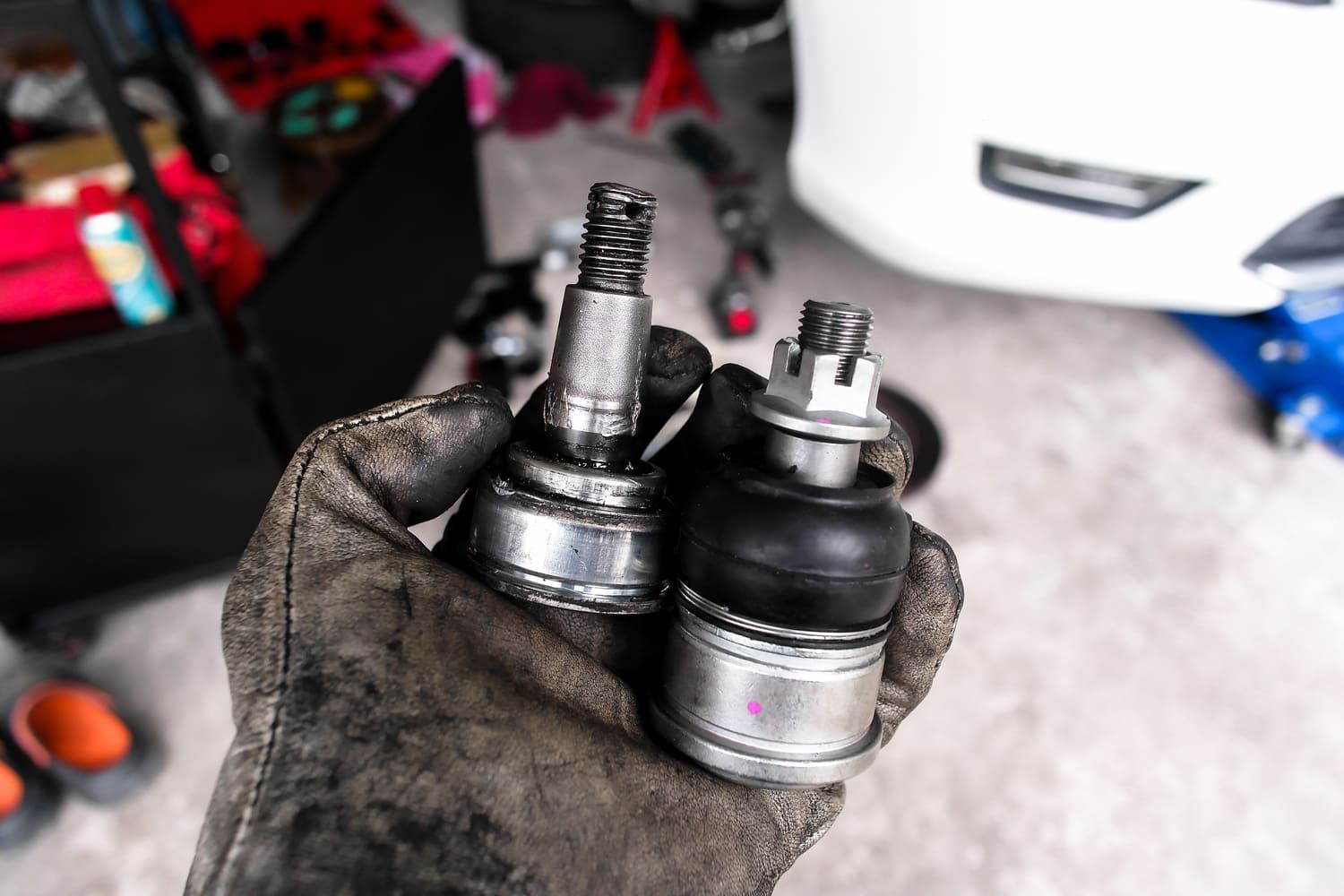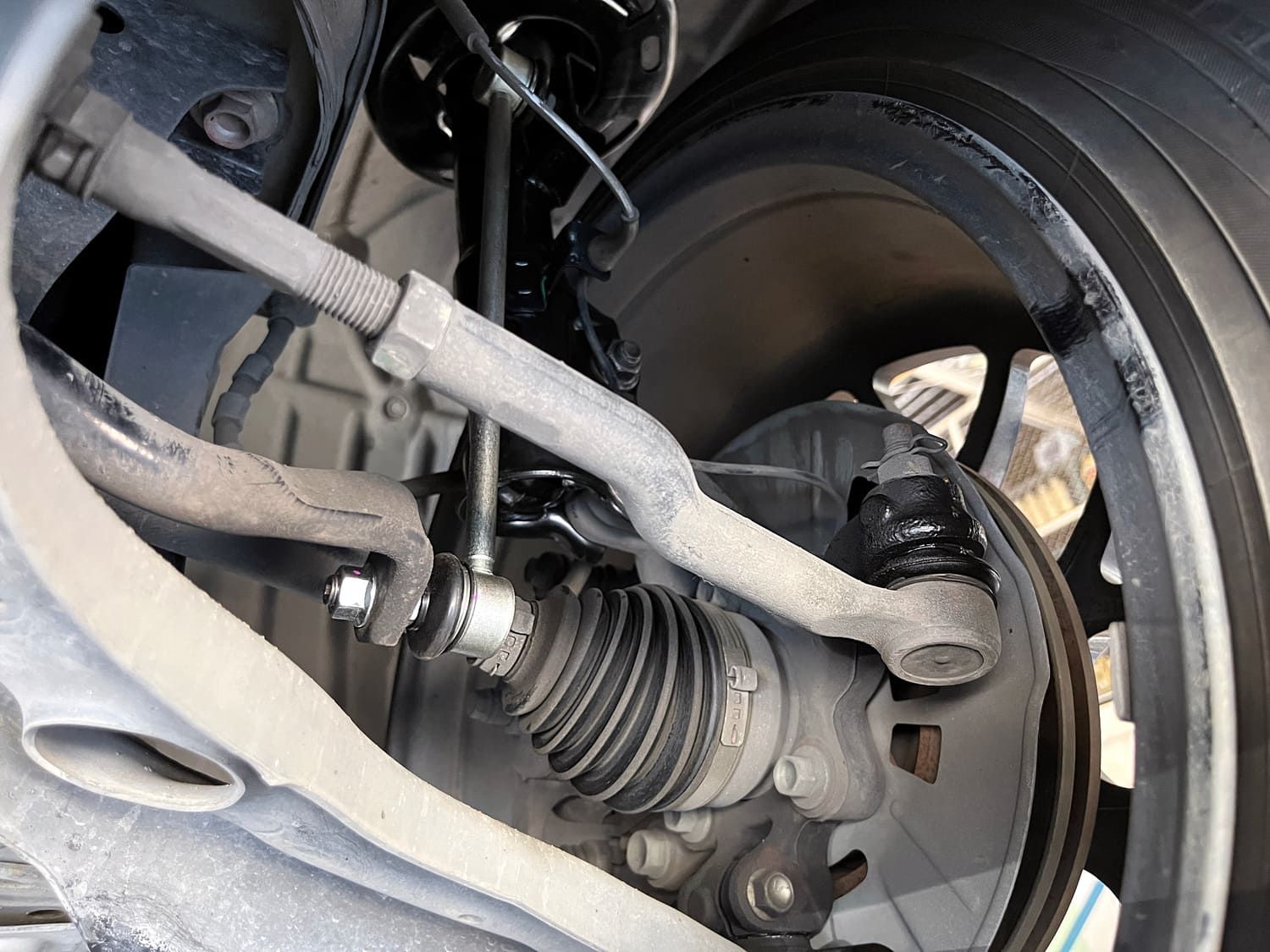>
Blog>
How Much Does a Ball Joint Replacement Cost? (UK Guide)How Much Does a Ball Joint Replacement Cost? (UK Guide)
On average, a ball joint replacement costs £90 in the UK.
Replacing worn-out ball joints is essential for keeping your ride smooth and safe, but the cost can be higher than expected.
In this ball joint replacement cost guide, we’ll break down the process and help you make a smart, budget-friendly decision.
Key takeaways
- How much to replace a ball joint in the UK?
- Cars known for ball joint wear (and cost guide)
- Ball joint replacement cost guide by car make
- How location affects ball joint replacement cost
- How long does it take to replace a ball joint?
- How long do ball joints last?
- How much should it cost to get a ball joint replaced?
- What is a ball joint?
- What are the signs of a bad ball joint?
- Which ball joints wear out first?
- Can you drive with failing ball joints?
- What happens during a ball joint replacement?
- Should I replace all four ball joints?
- Is it worth replacing ball joints?
How much to replace a ball joint in the UK?
The average ball joint replacement in the UK costs £90, but prices typically sit between £75 and £180, depending on your car and how many joints need replacing.
Labour is a big part of the bill, especially if specialist tools or skills are needed. Extra parts like bolts or gaskets can also add up. Let’s take a closer look at prices and the factors that affect them.
Cars known for ball joint wear (and cost guide)
Some cars are more prone to ball joint wear than others, and when they go, the repair bill can vary.
Here's a quick look at models known for frequent issues and what you can expect to pay to put things right.
Ball joint replacement cost guide by car make
Can’t see your vehicle in the table above? We’ve listed the average ball joint replacement costs per popular manufacturer below.
How location affects ball joint replacement cost
Did you know your location can also affect your ball joint replacement costs? Mechanics in London and other big cities tend to charge more than those in smaller towns.
How long does it take to replace a ball joint?
Ball joint replacement takes between two to four hours.
The time required to change a ball joint can vary depending on how much work needs to be done and the mechanic's skill.
How long do ball joints last?
The average lifespan of a ball joint is between 50,000-70,000 miles, depending on use and maintenance.
If driven in rough conditions or poorly maintained, your car’s ball joints may wear out faster. Different vehicles have varying lifespans, so regular maintenance checks are essential to keep ball joints working well and extend their life.
How much should it cost to get a ball joint replaced?
There’s no one price for every ball joint replacement. Several key factors influence the potential cost, and these include:
- Vehicle make and model
- Number of ball joints needing replacement
- Labour rates
- Quality of parts used
- Additional repairs or alignments required
If you can’t pay the cost in one go, you can consider Bumper's car repair finance to help you split the fee over time.
What is a ball joint?
Ball joints connect the control arm or steering knuckle to the wheel hub, acting like a shoulder joint to allow smooth suspension and steering movement.
Upper ball joints help absorb turning forces and maintain alignment. Lower ball joints serve as pivot points and may carry the vehicle’s weight or simply guide movement, depending on the suspension setup.

What are the signs of a bad ball joint?
Ball joints often cause loud clunking noises when driving over bumps or turning due to metal rubbing on metal from wear or looseness.
But that’s not the only sign to look out for. A bad ball joint can cause several issues, including:
- Excessive vibration and clunking noises over bumps
- Uneven or worn-down tyres
- Loose steering control
If you notice any of these, get your car checked promptly to avoid costly repairs. Many worn ball joints are caught during routine MOTs or service visits.
Which ball joints wear out first?
Front ball joints usually wear out first because they handle the stress of steering and manoeuvring.
There are two main types: metal, which is more durable and expensive, and rubber, which is cheaper but wears out faster, especially under tough conditions like off-roading or rough terrain.
Can you drive with failing ball joints?
Driving with failing ball joints is dangerous and can cause steering issues, uneven tyre wear, and loss of control. It may also be illegal in some areas.
If you must drive, stay within speed limits, avoid highways, and watch for pulling or vibrations. Address the problem promptly to keep yourself and others safe on the road.
What happens during a ball joint replacement?
Most ball joint replacements follow the same process. Here are the main steps:
- The car is jacked up and wheels removed
- Ball joints inspected and replaced if faulty
- Surrounding components checked
- Wheels realigned
- Suspension tested and mechanic performs a test drive
- Adjustments made if needed
Should I replace all four ball joints?
If replacing all four ball joints is too costly, start by fixing only the faulty ones to save money and time.
However, if all need replacement, it’s best to do it promptly to avoid further damage.
Replacing them one at a time can help spread costs, but the priority is to address the issue before more damage occurs.
Is it worth replacing ball joints?
Ball joint replacement can be costly, but it’s worth it.
These components are key to safe steering and handling. Replacing worn joints early helps prevent further damage and keeps your car driving smoothly, safely, and as it should.

Final words
Replacing your car’s ball joints can be a bit pricey, but it’s key for keeping you safe and steering smoothly.
Keep an eye out for signs of wear so you can fix problems early before they turn into bigger and more expensive issues.
Split the cost with Bumper
Need to cover a surprise ball join replacement cost?
With Bumper's interest-free car repair loans, you can split the cost of repairs into monthly payments at no extra cost.
Apply online for up to £5,000 and choose from 1,000s of trusted repairers.
Related Posts